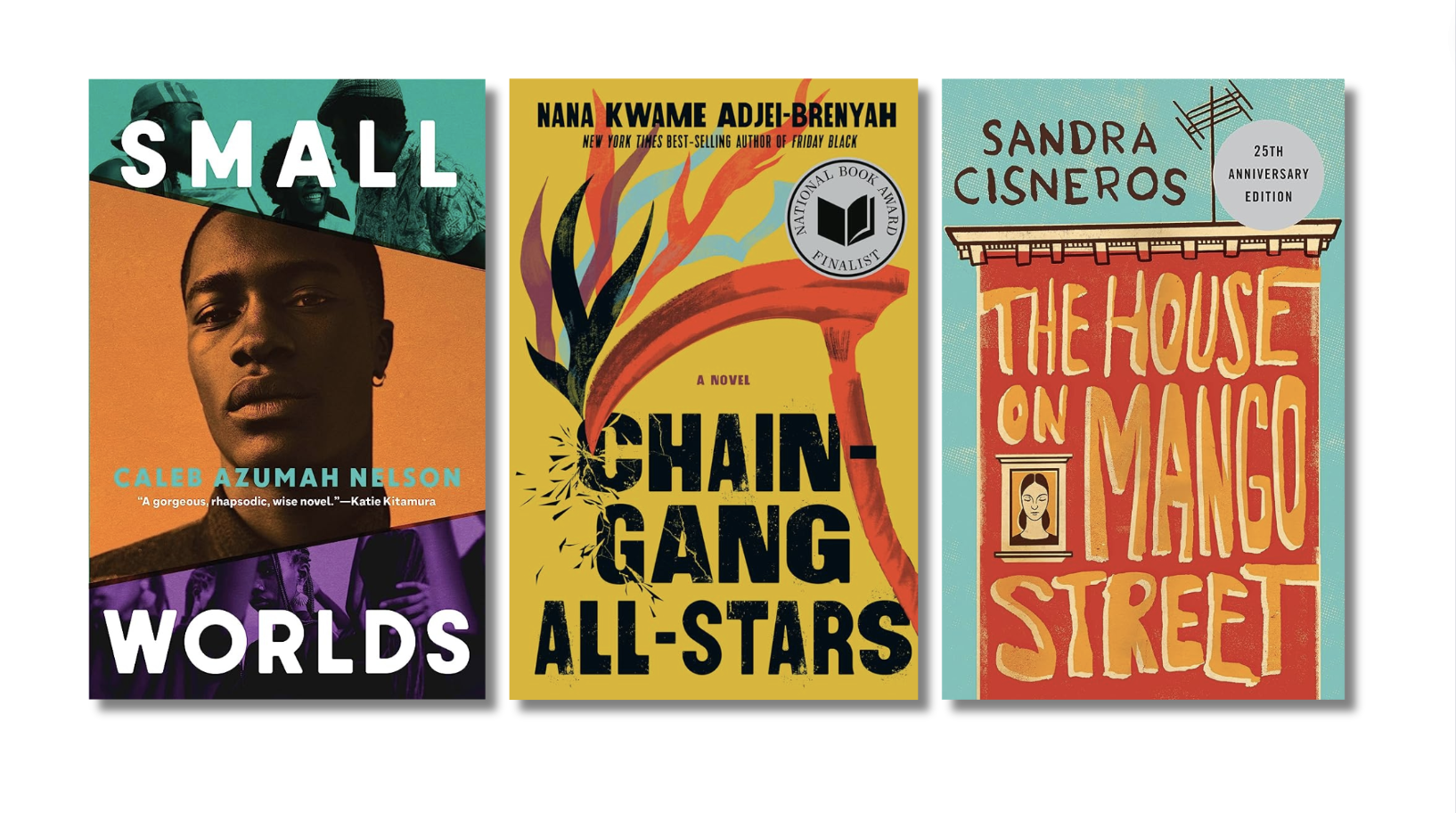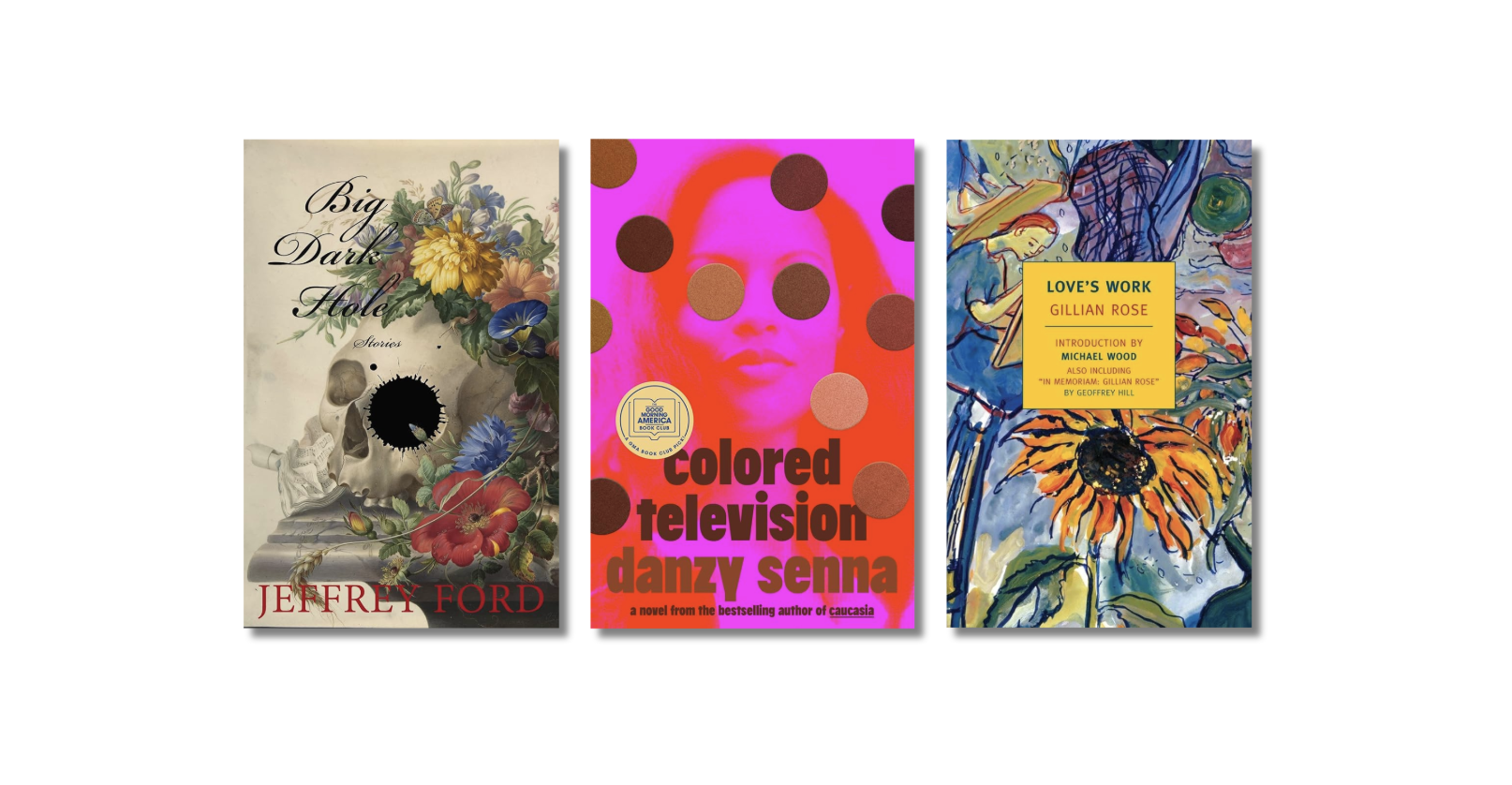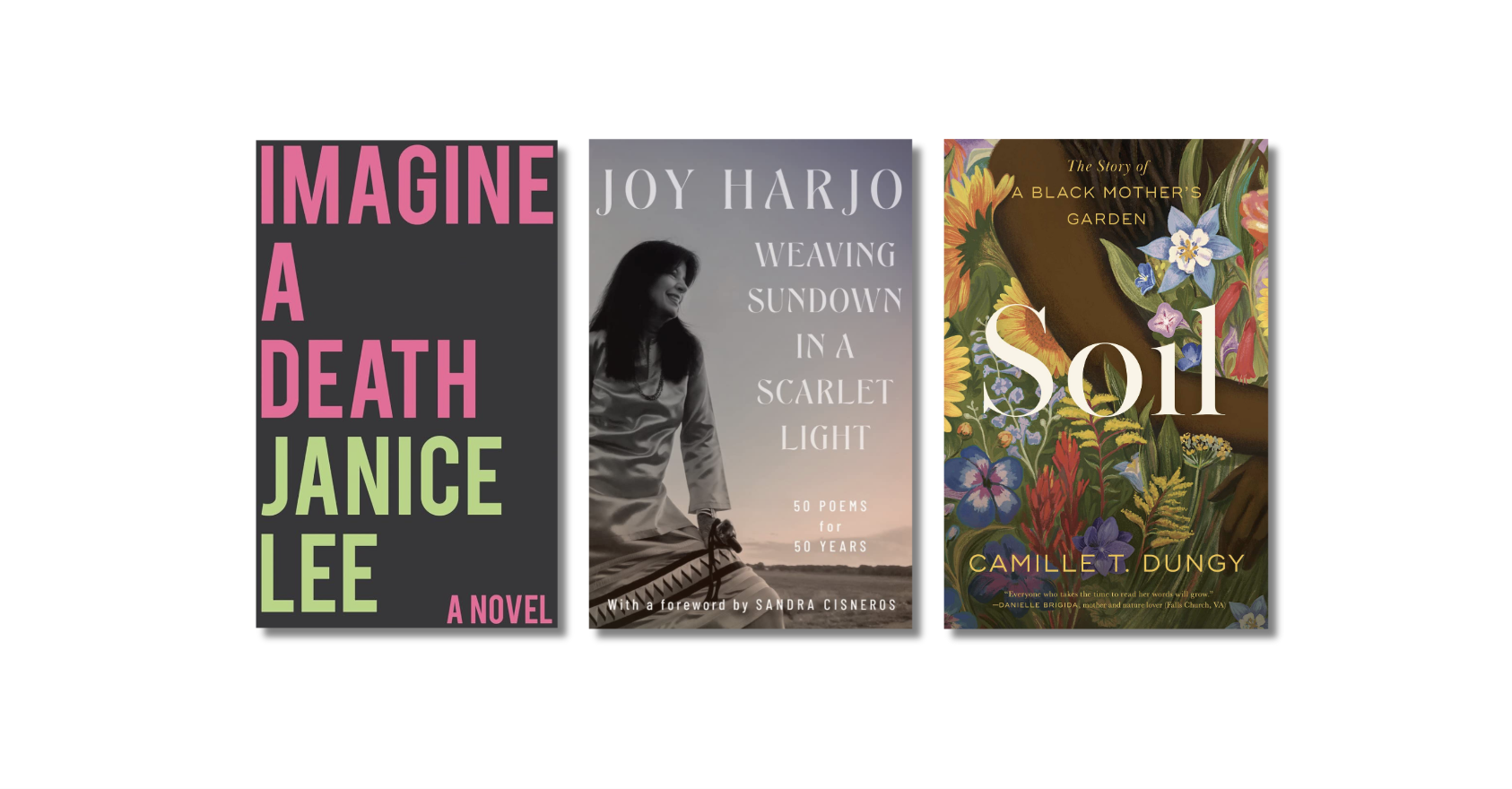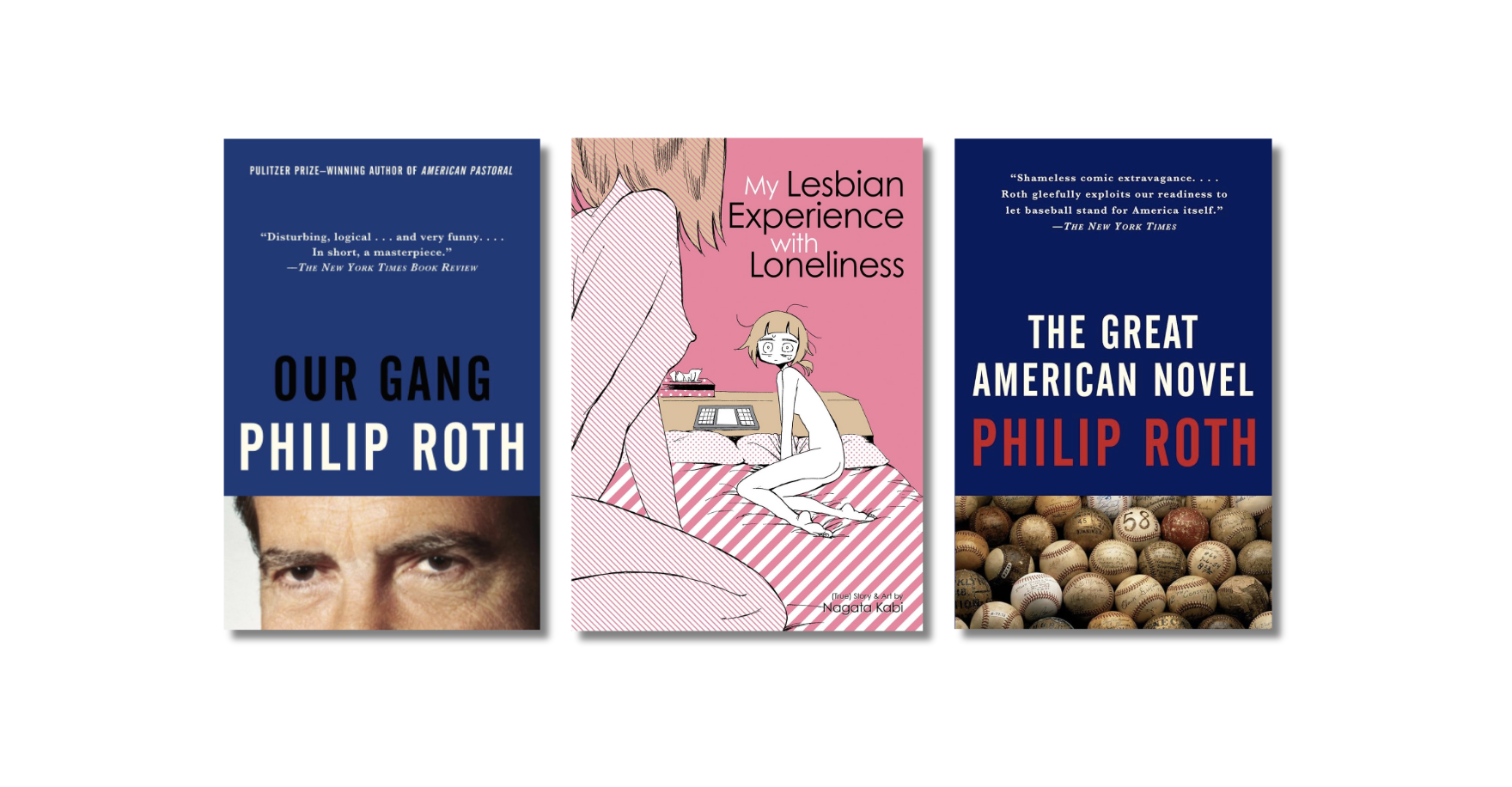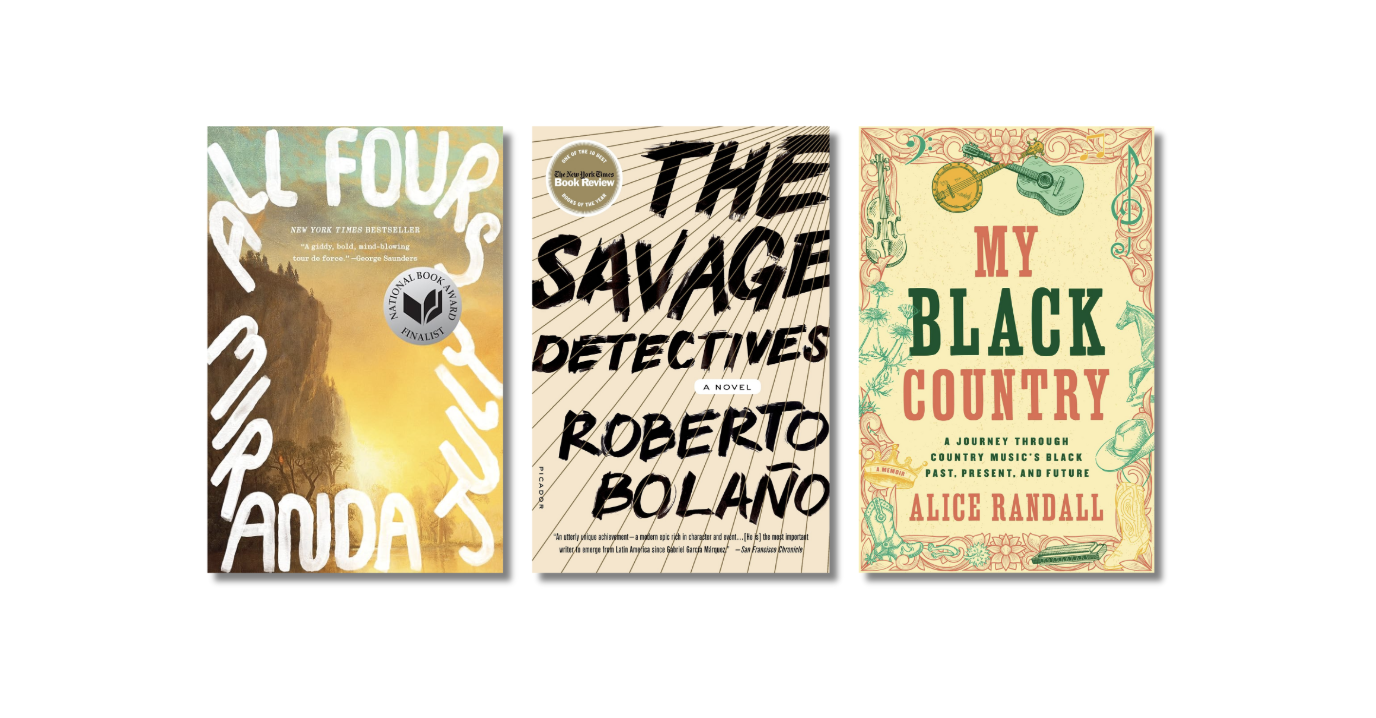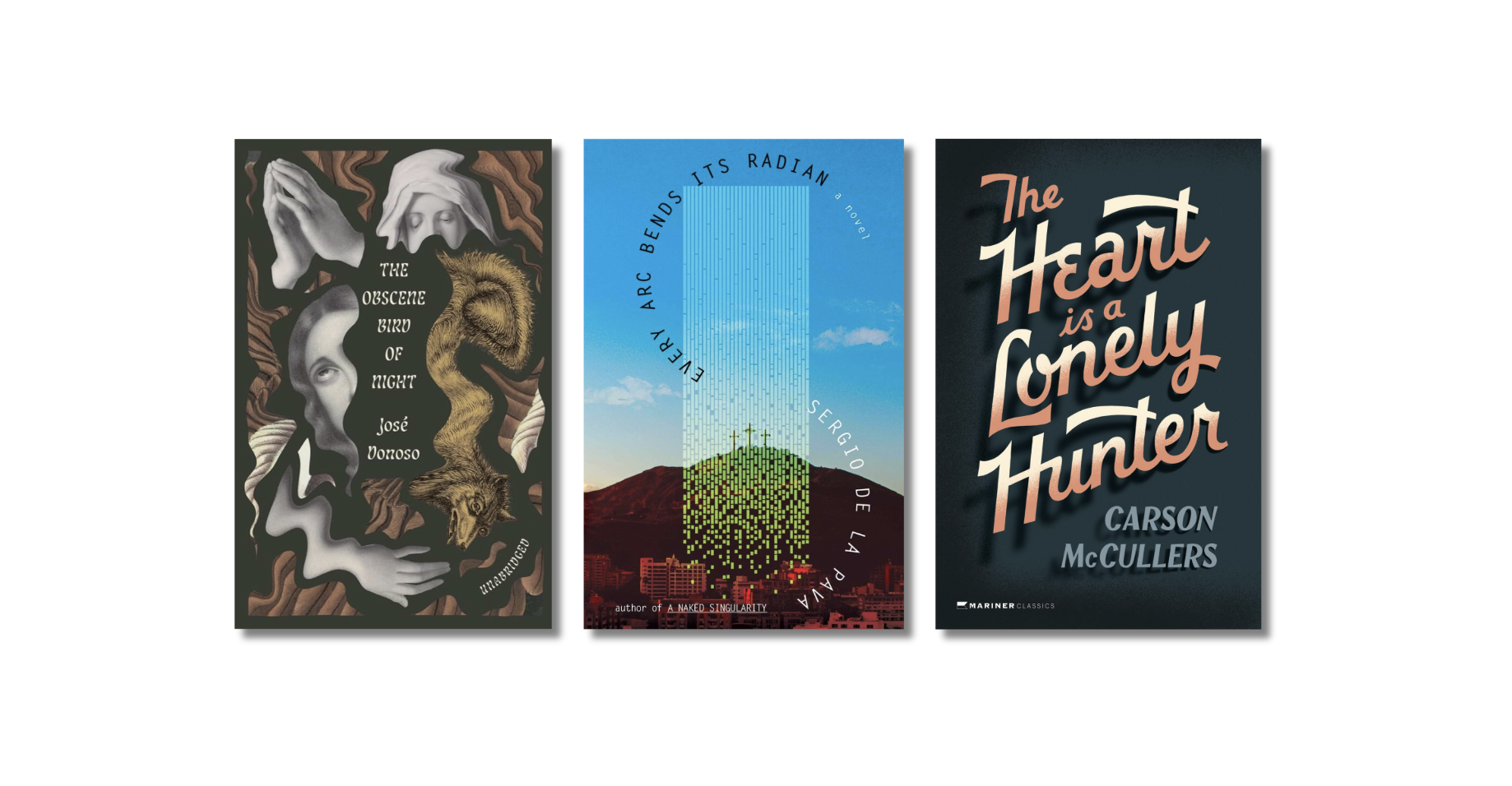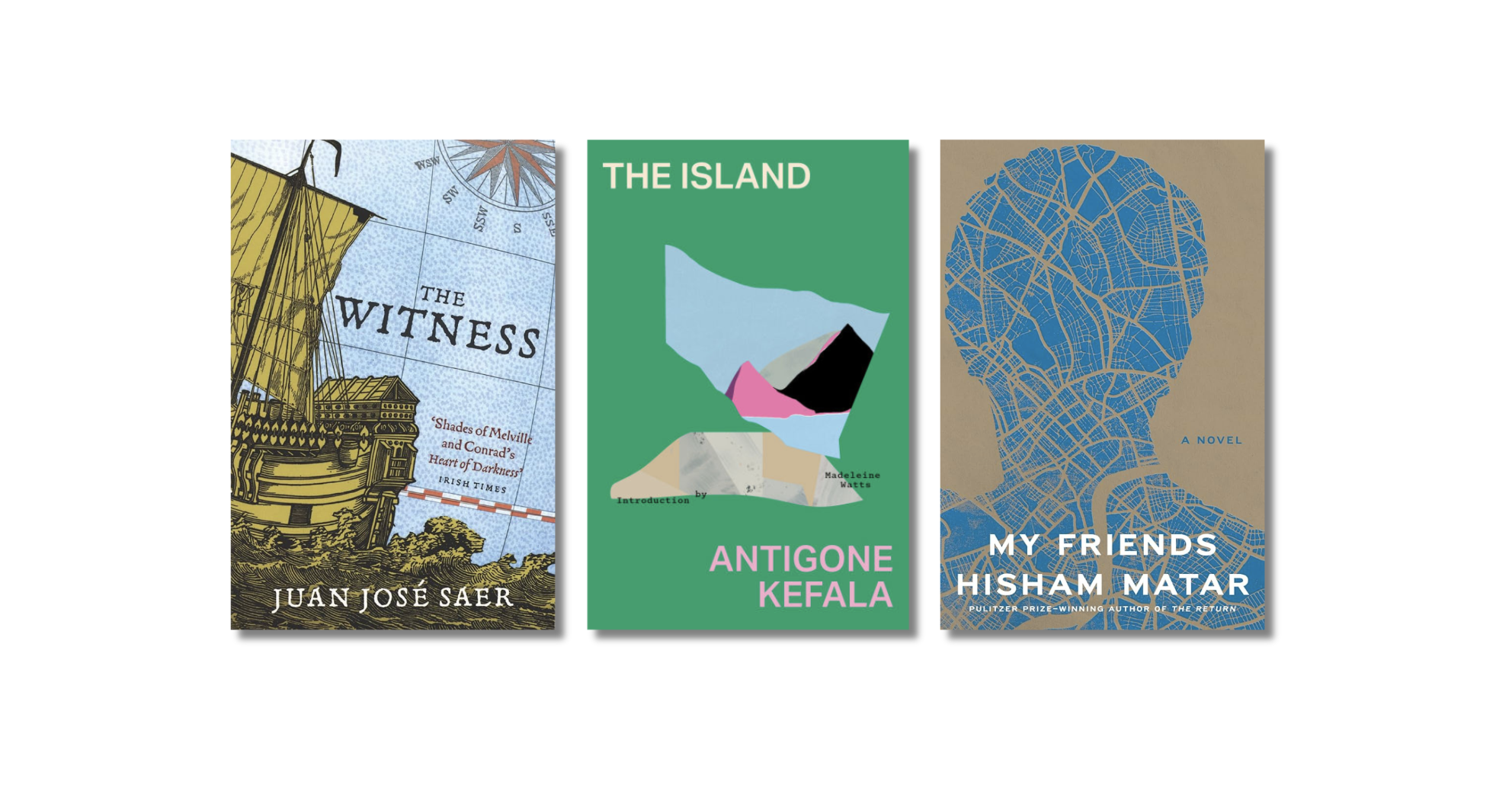My current home library is one that I’ve dreamed of building since my childhood days at the Brooklyn Public Library; there are books everywhere. Each year the stories on my shelves blossom into dangerously high stacks as my tastes evolve, and this year I found myself in the comfort of backlist, debut, and forthcoming titles alike. So despite the fact that Goodreads berates me for being “X books behind”, I read extraordinary books outside of my nine-to-five and devoured these stories in the way I would consume french onion soup on a chilly day. Below is a non-exhaustive list of books that are still running rampant through my mind:

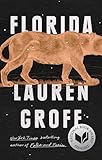
 I’ve only been to Florida once in my life and, while I don’t plan to return anytime soon, I was surprised that this was the area I frequented the most. Earlier in the year, Dantiel W. Moniz’s Milk Blood Heat nourished my appetite as I craved something intimate, dark, and memorable with a cast of dynamic Black women and girls at its core. In reading Lauren Groff’s Florida I discovered a new favorite story, “Eyewall”, where a woman is haunted by the ghosts of the men from her past while she braves a tempestuous hurricane that leaves her reflecting on these equally tumultuous relationships. Similarly, all the stories in this collection left me unmoored, emotionally picking me up and setting me right back down. I listened to Torian Brackett narrate If I Survive You by Jonathan Escoffery which was brilliant–a razor-sharp, hilarious book told in eight, interlinked stories following characters of Jamaican descent who are delightfully unhinged (and I say this with great admiration).
I’ve only been to Florida once in my life and, while I don’t plan to return anytime soon, I was surprised that this was the area I frequented the most. Earlier in the year, Dantiel W. Moniz’s Milk Blood Heat nourished my appetite as I craved something intimate, dark, and memorable with a cast of dynamic Black women and girls at its core. In reading Lauren Groff’s Florida I discovered a new favorite story, “Eyewall”, where a woman is haunted by the ghosts of the men from her past while she braves a tempestuous hurricane that leaves her reflecting on these equally tumultuous relationships. Similarly, all the stories in this collection left me unmoored, emotionally picking me up and setting me right back down. I listened to Torian Brackett narrate If I Survive You by Jonathan Escoffery which was brilliant–a razor-sharp, hilarious book told in eight, interlinked stories following characters of Jamaican descent who are delightfully unhinged (and I say this with great admiration).


 Outside of these Floridian collections, I (re)read ZZ Packer’s Drinking Coffee Elsewhere and was reminded how lucky we are to have Packer as the blueprint for short fiction in this lifetime. Cleo Qian’s LET’S GO LET’S GO LET’S GO is a cinematic exploration, one that feels equal parts propulsive, cathartic, and riveting in the best way. My achilles heel will always be novels-in-stories, and this year I read the vibrant vignettes in Sandra Cisneros’s The House on Mango Street for the first time. Cisneros’s final message for Esperanza on community, identity, and solidarity (“When you leave you must remember to come back for the others. A circle, understand?”) is an epiphany that I may or may not get etched onto my skin next year.
Outside of these Floridian collections, I (re)read ZZ Packer’s Drinking Coffee Elsewhere and was reminded how lucky we are to have Packer as the blueprint for short fiction in this lifetime. Cleo Qian’s LET’S GO LET’S GO LET’S GO is a cinematic exploration, one that feels equal parts propulsive, cathartic, and riveting in the best way. My achilles heel will always be novels-in-stories, and this year I read the vibrant vignettes in Sandra Cisneros’s The House on Mango Street for the first time. Cisneros’s final message for Esperanza on community, identity, and solidarity (“When you leave you must remember to come back for the others. A circle, understand?”) is an epiphany that I may or may not get etched onto my skin next year.


 I must make space for the incredible novels that were published this year, the stories that allowed me to confront harsh realities alongside their protagonists. Jessica George’s Maame held me captive from the first page as the titular narrator navigates post-university life while dealing with microaggressions at work, losing a parent, maintaining familial obligations, and developing budding relationships. I really can’t put into words how satisfying it was to swim through Caleb Azumah Nelson’s lyrical Small Worlds shortly after, a novel about love, family, and faith that I didn’t want to put down. Tania James’s Loot implicates large imperialist powers and their exploitative acts while making space for readers to love and root for a young, ambitious artisan whose hands quite literally changes the course of history. There’s so much beauty in this book.
I must make space for the incredible novels that were published this year, the stories that allowed me to confront harsh realities alongside their protagonists. Jessica George’s Maame held me captive from the first page as the titular narrator navigates post-university life while dealing with microaggressions at work, losing a parent, maintaining familial obligations, and developing budding relationships. I really can’t put into words how satisfying it was to swim through Caleb Azumah Nelson’s lyrical Small Worlds shortly after, a novel about love, family, and faith that I didn’t want to put down. Tania James’s Loot implicates large imperialist powers and their exploitative acts while making space for readers to love and root for a young, ambitious artisan whose hands quite literally changes the course of history. There’s so much beauty in this book.



 And while we’re talking exploitation, I can’t recommend enough the very real pains of crushing debt that puts Jonathan Abernathy in a chokehold, forcing him to take a job as an auditor of dreams, in Jonathan Abernathy, You Are Kind by Molly McGhee as well as the emotional cost of challenging systems that don’t do enough to protect survivors of assault in Kyle Dillon Hertz’s The Lookback Window. Nazlı Koca’s intimate portrait through the lens of her protagonist’s diary entries in The Applicant gives readers a brief look at how unforgivable academic institutions can be to a student, especially as a young, poor immigrant. Leyla spends her days working at a Berlin hostel and partying with friends, though the decision of whether or not her student visa will be terminated is not in her control. In the same vein of stories that contribute to larger conversations about society, I read Nana Kwame Adjei-Brenyah’s Chain Gang All-Stars which is a stellar companion to the work done in his debut collection Friday Black and a poignant, inventive look at the carceral state we live in through the eyes of two women looking for a way out. Simply, this book goes crazy.
And while we’re talking exploitation, I can’t recommend enough the very real pains of crushing debt that puts Jonathan Abernathy in a chokehold, forcing him to take a job as an auditor of dreams, in Jonathan Abernathy, You Are Kind by Molly McGhee as well as the emotional cost of challenging systems that don’t do enough to protect survivors of assault in Kyle Dillon Hertz’s The Lookback Window. Nazlı Koca’s intimate portrait through the lens of her protagonist’s diary entries in The Applicant gives readers a brief look at how unforgivable academic institutions can be to a student, especially as a young, poor immigrant. Leyla spends her days working at a Berlin hostel and partying with friends, though the decision of whether or not her student visa will be terminated is not in her control. In the same vein of stories that contribute to larger conversations about society, I read Nana Kwame Adjei-Brenyah’s Chain Gang All-Stars which is a stellar companion to the work done in his debut collection Friday Black and a poignant, inventive look at the carceral state we live in through the eyes of two women looking for a way out. Simply, this book goes crazy.





 Very few nonfiction and poetry have made their way onto my plate this year, but I’m very much still basking in how Blackness (and anti-Blackness) are explored in Kyle Carrero Lopez’s Muscle Memory, Karisma Price’s I’m Always So Serious and Nicole Sealey’s The Ferguson Report. This year Safiya Sinclair details powerful revelations in her memoir How to Say Babylon and I’m still reeling from the journey to Jamaica, to her ancestral roots. Nedra Glover Tawwab’s Set Boundaries, Find Peace and Black Women Writers at Work, edited by Claudia Tate, have found permanent homes on my bedside table. I constantly turn to these luminous pieces of texts as guideposts for the way I want to continue becoming the best version of myself in this ever-changing world.
Very few nonfiction and poetry have made their way onto my plate this year, but I’m very much still basking in how Blackness (and anti-Blackness) are explored in Kyle Carrero Lopez’s Muscle Memory, Karisma Price’s I’m Always So Serious and Nicole Sealey’s The Ferguson Report. This year Safiya Sinclair details powerful revelations in her memoir How to Say Babylon and I’m still reeling from the journey to Jamaica, to her ancestral roots. Nedra Glover Tawwab’s Set Boundaries, Find Peace and Black Women Writers at Work, edited by Claudia Tate, have found permanent homes on my bedside table. I constantly turn to these luminous pieces of texts as guideposts for the way I want to continue becoming the best version of myself in this ever-changing world.
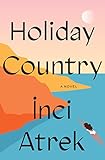


 This list would be incomplete if I didn’t include some of my favorite stories, the ones I had the privilege of reading (and, at times, editing) in anticipation for their release next year. I hold a deep reverence for these writers who take thematic and structural risks in their works to create compelling, unforgettable narratives that will stick with readers long after the final page. Holiday Country by İnci Atrek, Anita de Monte Laughs Last by Xochitl Gonzalez, First in the Family by Jessica Hoppe, The Fertile Earth by Ruthvika Rao, There Is a Rio Grande in Heaven by Ruben Reyes, and Cinema Love by Jiaming Tang are important, divine works in their own realms. I can’t wait for final copies of these books to find a home in my own library.
This list would be incomplete if I didn’t include some of my favorite stories, the ones I had the privilege of reading (and, at times, editing) in anticipation for their release next year. I hold a deep reverence for these writers who take thematic and structural risks in their works to create compelling, unforgettable narratives that will stick with readers long after the final page. Holiday Country by İnci Atrek, Anita de Monte Laughs Last by Xochitl Gonzalez, First in the Family by Jessica Hoppe, The Fertile Earth by Ruthvika Rao, There Is a Rio Grande in Heaven by Ruben Reyes, and Cinema Love by Jiaming Tang are important, divine works in their own realms. I can’t wait for final copies of these books to find a home in my own library.
More from A Year in Reading 2023
A Year in Reading Archives: 2022, 2021, 2020, 2019, 2018, 2017, 2016, 2015, 2014, 2013, 2012, 2011, 2010, 2009, 2008, 2007, 2006, 2005
